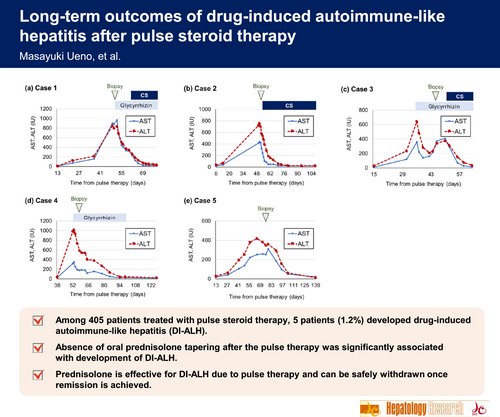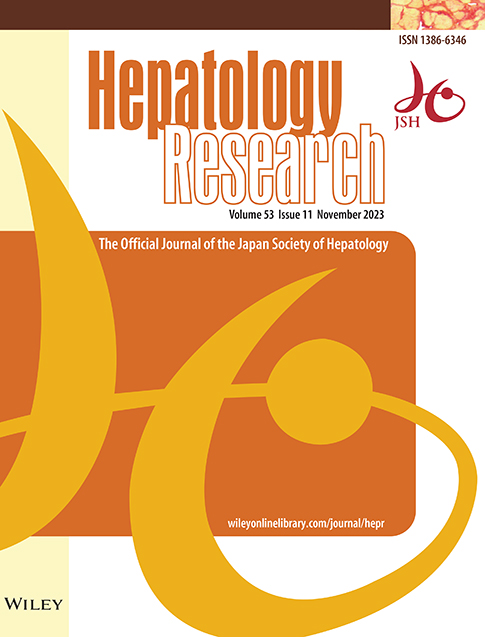Long-term outcomes of drug-induced autoimmune-like hepatitis after pulse steroid therapy
Abstract
Aim
Pulse steroid therapy occasionally causes drug-induced autoimmune-like hepatitis (DI-ALH), but the long-term outcome of treated patients is not well known. In this study, we investigated the long-term outcomes of DI-ALH due to pulse steroid therapy.
Methods
We retrospectively reviewed the medical records of 405 patients treated with pulse high-dose methylprednisolone in Kurashiki Central Hospital. The frequency and clinicopathological characteristics of acute liver injury that occurred within 3 months after the therapy were analyzed. The diagnosis of DI-ALH was made according to the revised international autoimmune hepatitis group criteria.
Results
Among the 405 patients treated with methylprednisolone, 61 (15.1%) had acute liver injury after the pulse steroid therapy, and DI-ALH was diagnosed in five patients (1.2%). Absence of oral prednisolone tapering after the pulse steroid therapy was a significant risk factor for the subsequent development of DI-ALH (odds ratio 11.9; p = 0.017). One patient was treated with 3 days of intravenous methylprednisolone followed by oral prednisolone. Two patients were treated with glycyrrhizin followed by oral prednisolone due to ineffectiveness of glycyrrhizin. Remission was achieved with glycyrrhizin alone, and spontaneous remission without drug therapy occurred in one patient each. During the median follow-up period of 34 months, no relapse was evident in all the patients without maintenance therapy.
Conclusions
Pulse steroid therapy can cause DI-ALH, especially when subsequent prednisolone is not tapered. Prednisolone is effective for DI-ALH due to pulse steroid therapy, and can be safely withdrawn once remission is achieved.
Graphical Abstract
CONFLICT OF INTEREST STATEMENT
Authors declare no Conflict of Interests for this article.
Open Research
DATA AVAILABILITY STATEMENT
The data that support the findings of this study are available on request from the corresponding author. The data are not publicly available due to privacy or ethical restrictions.





